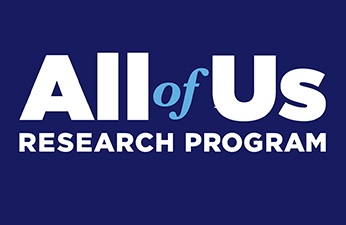Heart disease is the number-one cause of death in the United States with 12,641 deaths in Wisconsin from heart disease in 2020. Scientific advances are key to fighting these conditions and improving outcomes. New data from the National Institutes of Health’s All of Us Research Program show that 3,046 people in the state reported having heart disease on an All of Us survey. Their contributions are advancing medical research.
Marshfield Clinic Research Institute partners with All of Us to help ensure people in Wisconsin, including those historically underrepresented in biomedical research, have the opportunity to participate in this landmark research program. Their participation is equipping researchers with data that could lead to more tailored approaches to prevent and treat heart disease, and further our understanding of a range of different diseases and disorders.
People interested in learning more about the All of Us Research Program can visit https://marshfield.joinallofus.org or call (888) 633-9987. All of Us representatives will be in Green Bay May 1, from 8 a.m. to 8 p.m., and May 2, from 7 a.m. to 4 p.m., at Sullivan Wallen American Legion Post #11, 1708 N. Irwin Ave, to enroll people into the program. All of Us representatives will be in Appleton May 3, from 8 a.m. to 8 p.m., and May 4, from 7 a.m. to 4 p.m., at the DoubleTree by Hilton Appleton, 150 S. Nicolet Road, to enroll people into the program.
“Everyone has a health story. For some, it may be high blood pressure, or a family history of heart attacks. By sharing health data with All of Us, participants can contribute to thousands of research studies and help change the trajectory of medical research for generations to come,” said Scott Hebbring, principal investigator for All of Us Wisconsin. “Researchers are able to use information that participants provide about their health history, lifestyle and where they live, alongside data from electronic health records and DNA, to get a more complete picture of health than has previously been available to study.”
Heart disease is responsible for 1 in 5 deaths in the U.S., according to the Centers for Disease Control and Prevention, and individuals from different racial and ethnic communities historically underrepresented in medical research face a disproportionate toll. In 2018, African Americans were 30% more likely to die from heart disease than non-Hispanic whites and American Indians/Alaska Natives were 50% more likely to be diagnosed with coronary heart disease than people who are white, according to The Office of Minority Health at the U.S. Department of Health and Human Services.
Nationwide, more than 35,000 All of Us participants report having different heart problems on a survey about their personal health history – including atrial fibrillation, congestive heart failure, coronary artery disease, heart attack, and heart valve disease. This makes All of Us one of the largest groups of heart disease patients providing data for research.
More than 400,000 participants have joined All of Us since it began national enrollment in 2018. About 80% of participants represent communities that have been historically underrepresented in medical research, and nearly 50% identify with a racial or ethnic minority group. By contributing different kinds of data – including from participant surveys, electronic health records, biosamples, physical measurements, and wearable devices, like Fitbits – participants in the program are helping to build one of the most detailed, complete pictures of health available.
As part of the program’s commitment to returning value to participants, All of Us recently began returning personalized health-related DNA reports to participants who choose to receive them. Results can help participants learn about potential health risks or how their bodies react to certain medicines. This is especially important for people with heart disease because people with certain genetic differences may not respond well to commonly used treatments. If known, DNA variations can lead health care professionals to choose alternate therapies that could work better for that individual.
The All of Us Research Program at Marshfield Clinic is funded by National Institutes of Health award 3OT20D026555-01.
All of Us is a registered service mark of the U.S. Department of Health & Human Services (HHS).

